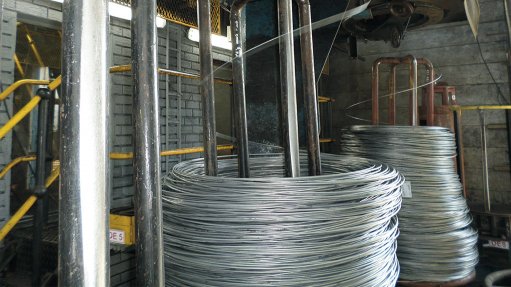
Photo by: Ilan Solomons
The Competition Commission has castigated the respondents of a case involving alleged price-fixing in the wire and wire products manufacturing industry, accusing the companies of “abuse of process” by attempting to stall a Competition Tribunal hearing into the alleged cartel activity.
The commission, which referred a case against the respondents to the tribunal for prosecution in January 2007, alleged that the respondents, who were all competitors, had engaged in a concerted practice to directly or indirectly fix the prices of light galvanised wire.
It further alleged that three of the respondents formed a body dubbed the ‘Allens Meshco Group’ and either entered into an agreement or engaged in a concerted practice to fix the prices of nails.
If found to have contravened the Competition Act, the commission had asked the tribunal to fine the respondents 10% of the firms’ yearly turnovers.
However, respondents Allens Meshco, Wireforce, Hendok, Independent Galvanising and Associated Wire Industries – trading as Meshrite – on Thursday attempted to have the tribunal hearing into the matter, which was set down from January 22 to February 4, postponed.
The basis for the postponement request, which was ultimately denied by the tribunal, was that a separate application had been brought to the High Court by Allens Meshco and nine other respondents to review the commission’s decision not to consider or grant leniency to the respondents.
The companies argued on Thursday that the tribunal hearings should not preempt the decision of the High Court, which could find in their favour and impel the commission to grant them leniency in exchange for information relating to the alleged cartel activity.
Senior counsel for the respondents Advocate Brenton Geach told the tribunal on Thursday that it was “not the respondents’ fault” that the High Court judgment had yet to be handed down, noting that a continuation of the tribunal hearings prior to the High Court judgment was “futile [and] senseless”.
“It’s quite appropriate that we delay…[because] the judgment will affect this hearing [despite] the attitude of the commission [in reaction to the application for a postponement] being one of opposition,” he held.
The Pretoria advocate argued further that the approach adopted by the respondents in the tribunal hearing process would be materially dictated by the findings of the High Court in the leniency matter.
While the respondents had essentially conceded to cartel activity in the leniency application, he added that this did not necessarily mean that they would admit to wrongdoing during the tribunal hearings.
“[If] there is an argument that the [respondents] can’t blow hot and cold or have divergent stances on the same issue, then that can be taken up during cross-examination.
“[We] aren’t trying to delay the tribunal adjudication, we’re trying to avoid the adjudication, [because] if the High Court finds [in our favour] and agrees that the commission should have granted [the companies] leniency under the commission’s Corporate Leniency Policy (CLP), this would provide immunity from prosecution by the tribunal,” he said.
Opposing the postponement application, the commission described the application as a “clear abuse of process” and an attempt by the respondents to prevent the matter from being heard before the tribunal.
Competition Commission senior counsel Advocate Hamilton Maentjie said a postponement would frustrate the enforcement of the Competition Act as there was “no likelihood” of the applicants being granted leniency in the High Court case.
“In 2008, the applicants in the High Court case admitted to cartel behaviour in their marker application to the commission. The commission denied the applicants leniency because they were not the first applicants to apply for lenicency in this matter.
“They can’t now ask the tribunal to [ignore the fact that they] have admitted to the cartel activity. [You] can’t confess as a CLP applicant but then defend yourself in front of the tribunal,” he held.
Finding in favour of the commission, the tribunal denied the postponement application and would hear opening statements and first witness statements on Monday